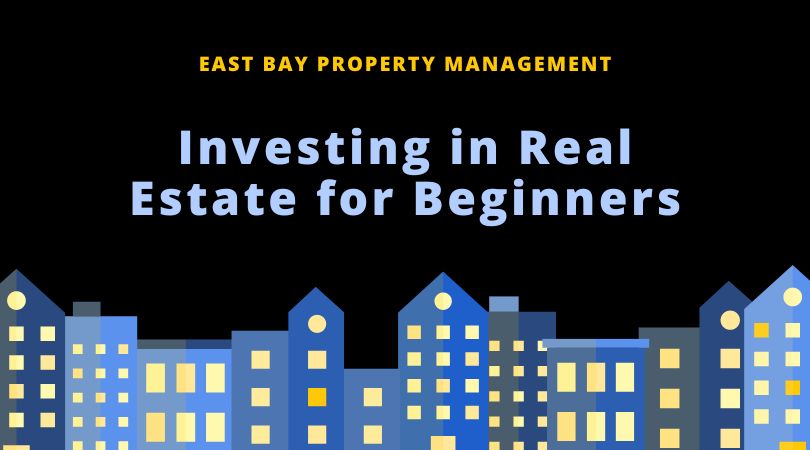Real estate is an excellent investment option with a variety of ways to start turning a profit. Not only can this investment vehicle be a great side hustle, but it could also become your primary source of income and generate long-term wealth.
Achieving your financial objectives through real estate investing is a terrific idea, but as a beginner, it can be challenging to understand the process. Not sure where to begin? This guide is designed to help new investors navigate the process.
There are several kinds of real estate investments to consider and, each one offering different challenges and opportunities. Here are the various real estate investments open to you:
Single-Family Homes
Investing in a single-family rental home is a popular strategy for novice real estate investors. Single-family homes have advantages over other property types for beginners as they are less expensive than multi-family or commercial properties in terms of maintenance, management, and taxes, making them simpler to handle.
Single-family homes also see strong long-term demand and appreciation, with an active resale market. For these reasons, a single-family home offers a lower-risk investment with consistent returns for those new to real estate.
Many owners of rental properties seek a property manager to handle the daily chores associated with property ownership. The benefits of professional property management include tenant screening, marketing, maintenance, and financial reporting. Ultimately, the right company can help you maximize your return on investment.

Multi-Family Properties
Purchasing a multi-family property, such as a triplex, duplex, or small apartment building, has the added benefit of scale while still providing many of the advantages of a single-family home. You can get rental income from more than one tenant if you have multiple units.
What’s more, because multi-family properties typically appreciate more quickly than single-family homes, they also have a higher potential for appreciation. This is a result of the increased demand for and perceived value of multi-family real estate as an investment. Additionally, repair expenses are divided among several units to minimize disruption to your cash flow.
Short-Term Rental Properties
For first-time investors, a short-term rental can be an excellent start. Rented nightly versus long-term, you can increase profits faster on a platform like Airbnb due to higher returns than long-term rentals. With this flexible pricing model, you maximize income.
Buy-and-Hold
Buying a rental property to hold onto it for a long time and use it as a passive investment is known as the “buy-and-hold” strategy. The intention is to take advantage of long-term appreciation gains, tax benefits, and consistent rental income.
With this low-risk strategy, you can finance a significant amount of the purchase with a mortgage, giving you leverage. Your equity in the house rises as your tenants gradually pay their rent. As the monthly mortgage balance drops, cash flow also gets better.

Note that to optimize returns through long-term appreciation, buy-and-hold investing may need to be done for five to ten years or longer. Additionally, you will require reserves for upkeep, repairs, and times when there are no tenants.
Fixing and Flipping
Fix-and-flipping requires investors to purchase properties in poor condition, make repairs/upgrades, and then sell for profit. This method allows for real estate investing without a long-term commitment.
Furthermore, no tenant management is needed, avoiding those responsibilities. However, it’s important to use a solid strategy, or losses could occur. Careful financial management is needed to mitigate the risks of over-investing in this active, non-passive investment approach.
Turnkey Investment Properties
An income-producing property is bought, renovated, or built by a different business, which then sells the fully leased and managed rental to investors at a premium. This is known as a turnkey investment. Among the advantages is the ability to have companies handle property management, upkeep, repairs, and tenant screening.
House Hacking
Buying a rental property with multiple units, like a duplex or triplex, to reside in one of the units is known as “house hacking.” The remaining units on the rental property can then be rented out. Because your other tenants will be paying your rent and your mortgage in part, this is a great way to generate passive income.

Since you will be residing there, this method also allows you to oversee the rental property independently. Because you are so close to the property, you have the option to solve any issues on your own.
Become a Lender
Becoming a lender is another way to earn money in the real estate industry if you don’t own any property. This strategy necessitates having some initial capital. Although it might not be the first tactic that springs to mind when you think of real estate investing, this one can be beneficial.
In essence, hard money lenders lend money to investors in real estate who don’t meet the requirements for a bank mortgage. By doing this, you’ll expand your professional network and get a great return on your investment.
Bottom Line
Real estate continues to be one of the most reliable sources of long-term wealth generation when the right strategies are employed. Getting started simply requires taking the first step of educating yourself on different avenues and testing smaller investments initially. With patience and experience over time, real estate investing can become a substantial source of income as an individual builds a larger diversified real estate portfolio.
With the resources and experience of East Bay Property Management, investors can take advantage of new opportunities and create a profitable investment portfolio in the dynamic real estate market. Contact us today to learn about our professional property management services!






